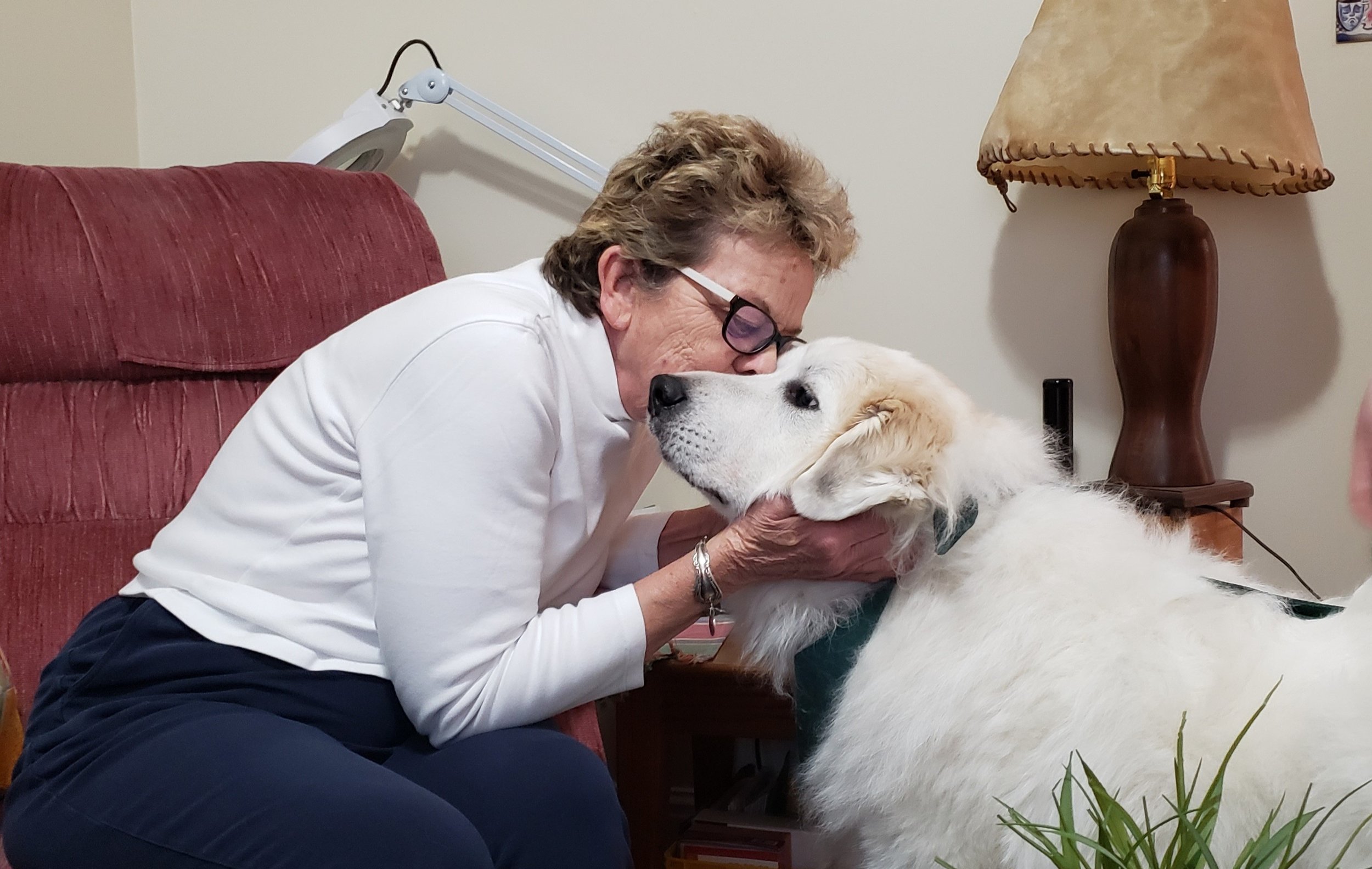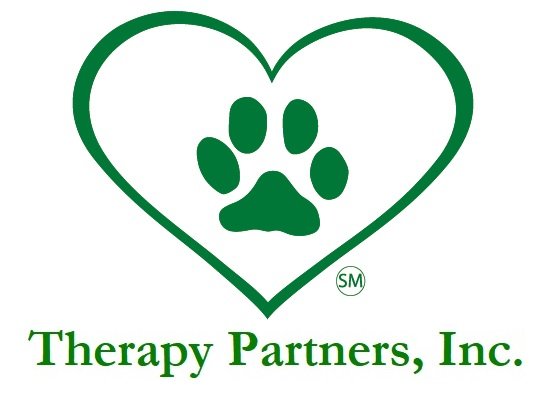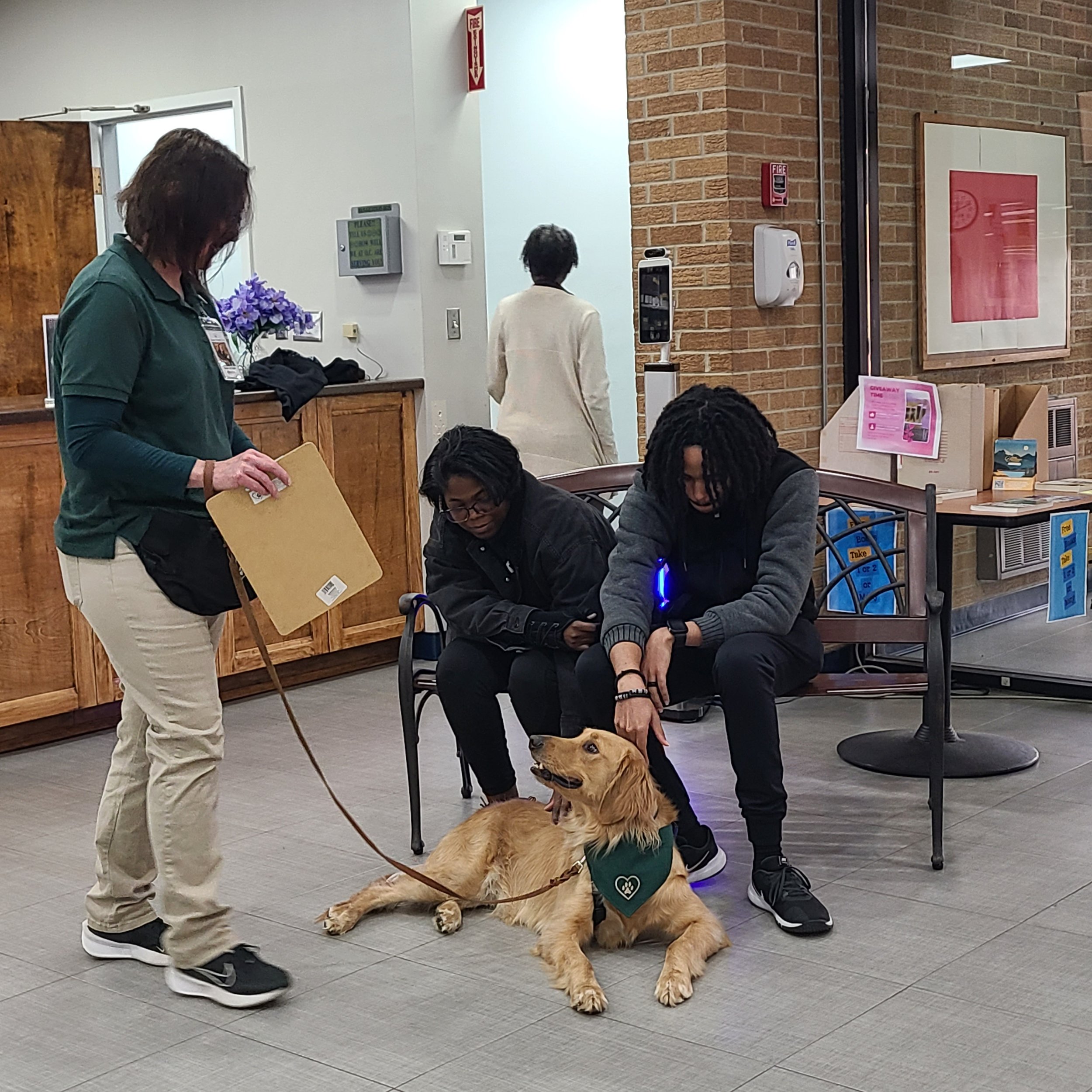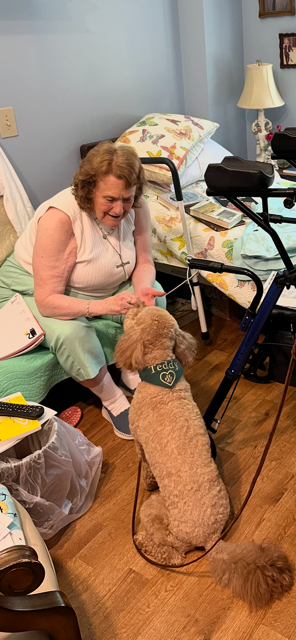
Therapy Partners
Providing moments of calm in uncertain situations
Therapy Partner teams have made over 135,000 visits since 1994
Animal Assisted Therapy has been in practice since 1960.
Dr. Boris Levinson discovered that he was able to connect with a “withdrawn 9-year-old boy” when his dog, Jingles, was in the room.
Dr. Levinson presented his findings to the American Psychological Association a year later.
Within 10 years nearly 20% of clinicians were using Animal Assisted Therapy.
Today, an increasing number of hospitals utilize AAT, and nearly 60% of hospice care providers that provide alternative therapies offer pet therapy to patients.
Source: Alliance of Therapy Dogs
We celebrated 30 years of service to the Tennessee Valley in 2024, and are going strong!
Therapy Partners offers our services free to the community. All of our Therapy Partners teams are volunteers. The benefits of animal-assisted therapy are not only enjoyed by the recipients with whom we interact, but also by the staff, educators, caregivers and family of those we visit.
Partners in the Community programs often have us at local universities helping students deal with stress during exams.
Our 10 programs allow us to regularly serve healthcare facilities, elementary and high schools, military and veteran facilities, Huntsville International Airport, behavioral centers, assisted living facilities, senior centers, libraries, and hospice patients in the greater Tennessee Valley area from the Huntsville/Madison County area to Decatur/Priceville, Florence, and a few areas in southern Tennessee.
Our WAGS (Wait, Ask, Greet Safely) program teaches children and adults dog bite safety and the correct way to greet a friendly dog.
Partners Achieving Wellness programs include visiting assisted living facilities.
We help students increase their confidence and reading skills with our Partners Achieving Literacy program.
Are all therapy animals dogs? No.
Within Pet Partners, the organization that registers our handler teams, most of the therapy animals are dogs (92% of total registrations), but they also register cats, equines (horses & donkeys) rabbits, guinea pigs, domestic rats, some birds, miniature pigs, and llamas & alpacas.
The most important quality a therapy animal will have is a natural bent for interacting with people, remaining calm, and trustworthy behaviors in all situations. Handlers often have an idea where they would like to serve, but it’s decided by the animal’s affinity and the area most comfortable for them.
The handler and their animal must have a strong bond of trust, and the handler needs to be in tune to their animal’s emotions … able to read their body language and advocate for their welfare is key. We have a well established process for becoming registered as a team. Click here to learn more









